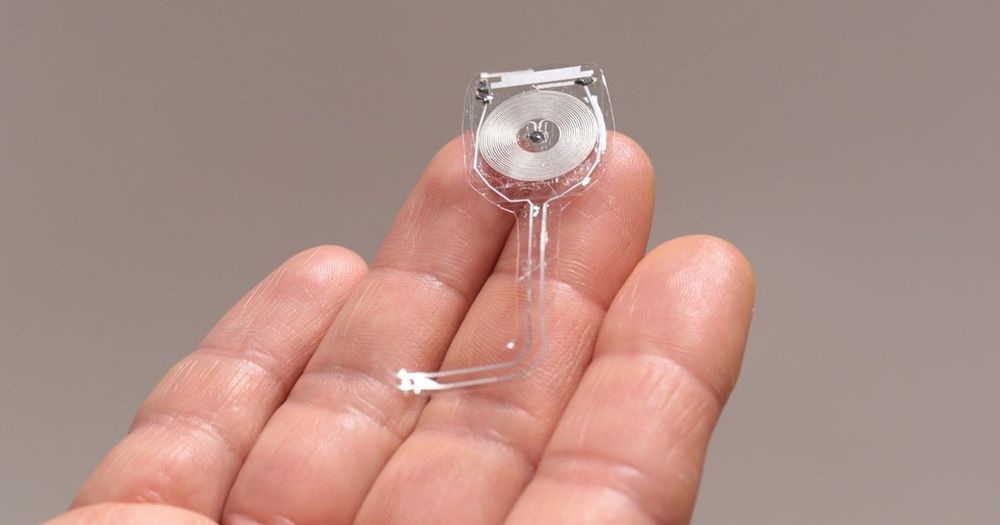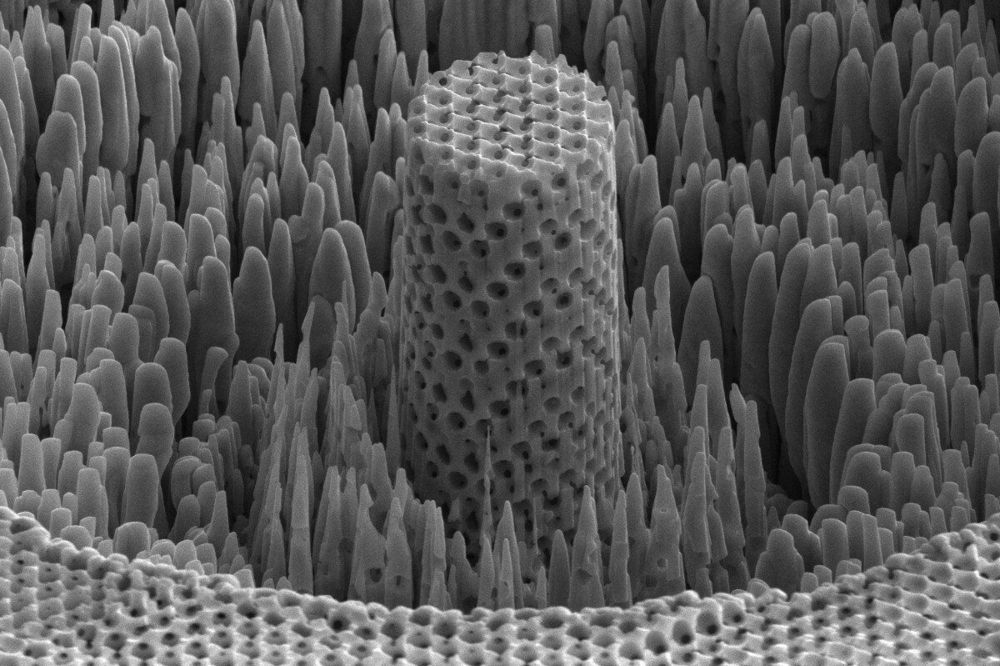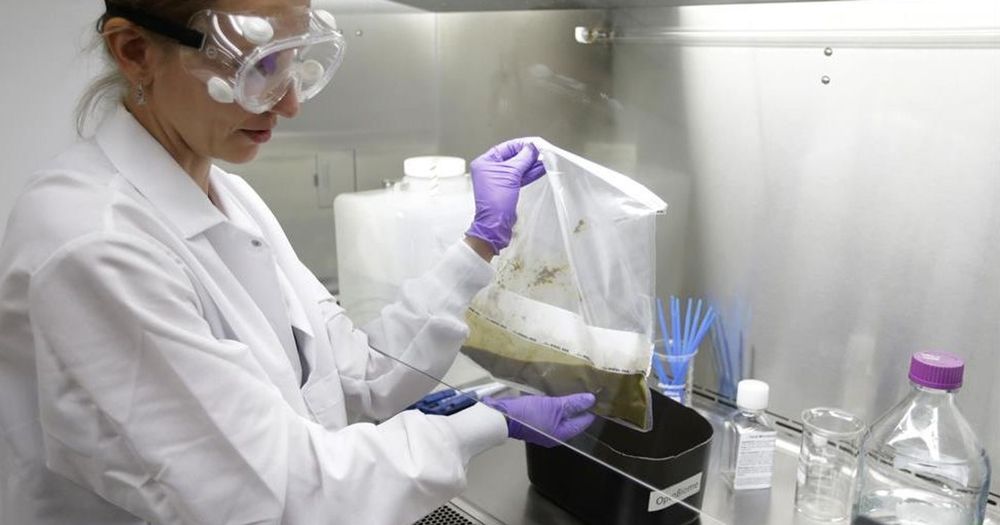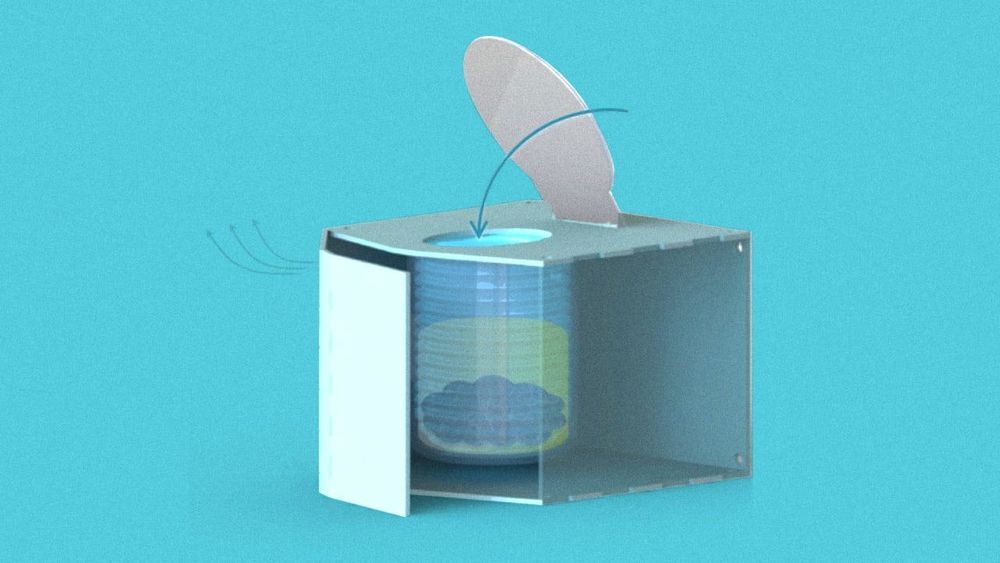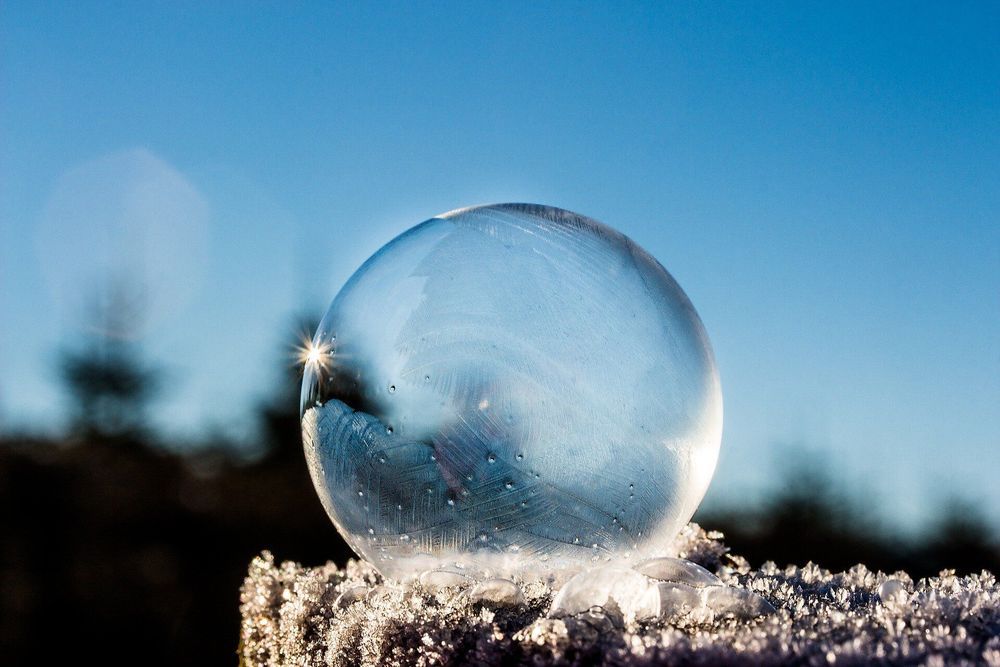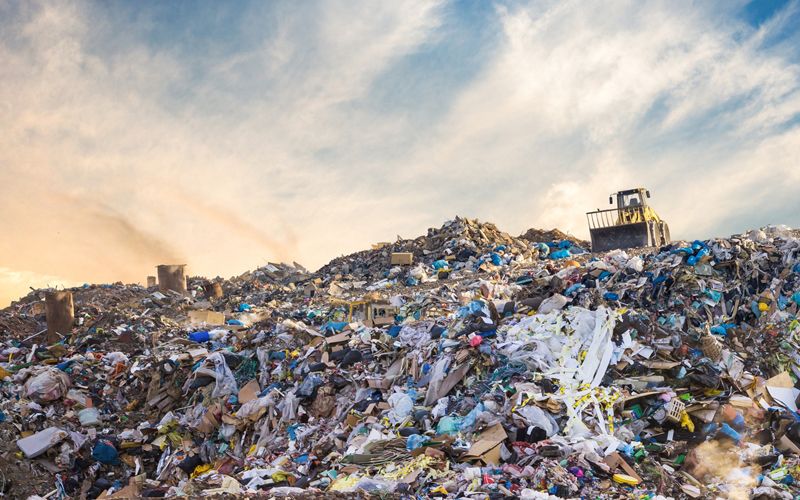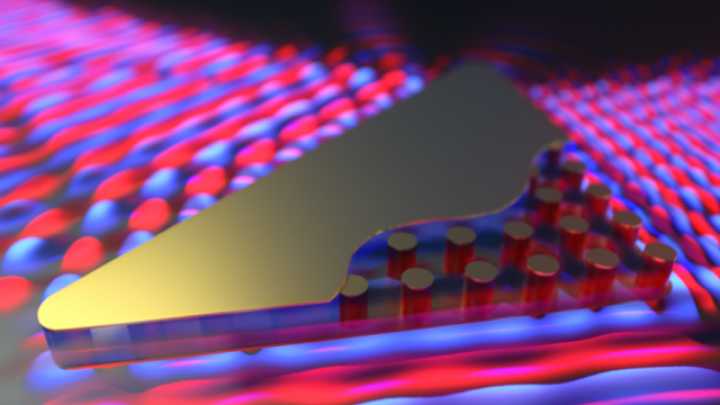Page 8204
Jan 30, 2019
Engineer’s ‘metallic wood’ has the strength of titanium and the density of water
Posted by Quinn Sena in categories: nanotechnology, particle physics, transportation
High-performance golf clubs and airplane wings are made out of titanium, which is as strong as steel but about twice as light. These properties depend on the way a metal’s atoms are stacked, but random defects that arise in the manufacturing process mean that these materials are only a fraction as strong as they could theoretically be. An architect, working on the scale of individual atoms, could design and build new materials that have even better strength-to-weight ratios.
In a new study published in Nature Scientific Reports, researchers at the University of Pennsylvania’s School of Engineering and Applied Science, the University of Illinois at Urbana-Champaign, and the University of Cambridge have done just that. They have built a sheet of nickel with nanoscale pores that make it as strong as titanium but four to five times lighter.
The empty space of the pores, and the self-assembly process in which they’re made, make the porous metal akin to a natural material, such as wood.
Jan 30, 2019
Turning manure into gold: The excrement economy
Posted by Quinn Sena in categories: biotech/medical, economics, sustainability
Behold the new black gold. Dark and warm, it oozes water and teems with beneficial properties. It even harbors precious metals.
And boy does it stink.
Call it the excrement economy. Between the rise of fecal transplants and water strained from latrine sludge, the poop market is hot. Besides removing toxic waste, the commodification of crap could mean big bucks, especially in the developing world. Sounds crazy, but look at what happened with used cooking oil — now processed into biofuel instead of dumped into landfills — which went from being worth nothing in the early 2000s to $3.30 a gallon in 2011, according to the Utah Biodiesel Supply.
Continue reading “Turning manure into gold: The excrement economy” »
Jan 30, 2019
This Toilet Vaporizes Poop To Solve Sanitation Problems
Posted by Quinn Sena in category: futurism
Designed for places that don’t have indoor plumbing, the change: WATER toilet sucks the water out of waste so it’s more compact, more sanitary, and easier to dispose of.
[Image: change: WATER].
Jan 30, 2019
The zero-waste movement is coming for your garbage
Posted by Quinn Sena in category: sustainability
Jan 30, 2019
Human waste could power plastic-making in space
Posted by Quinn Sena in categories: energy, space
Someday recycled urine and exhaled breath could feed specially engineered yeast to make plastics and other useful chemicals on long space missions.
Jan 30, 2019
All-in-one transparent transistors
Posted by Quinn Sena in categories: computing, solar power, sustainability
Small tweaks in component ratios generate electronically different layers from the same material to create transparent transistors.
Worldwide demand is growing for transparent conducting oxides for use in solar cells, flat panel displays, smart windows and semiconductor-based consumer electronics. KAUST researchers have engineered a zinc-oxide-based transparent material that displays tunable electronic properties depending on the tweaking of a new type of dopant.
Transparent electronics rely on indium tin oxide, a transparent and electrically conductive material that has an exorbitant cost due to the scarcity of indium. Zinc-oxide-based materials, such as hafnium-doped zinc-oxide materials, are expected to offer affordable, green and abundant alternatives to indium tin oxide. However, hafnium-doped zinc-oxide materials typically require high deposition temperatures and display inadequate performance for real-life device applications.
A mysterious strain of fungus that scientists found in a garbage dump in Pakistan eats plastic.
Jan 30, 2019
‘Recycling’ Energy Seen Saving Companies Money
Posted by Quinn Sena in categories: economics, energy, sustainability
A Chicago-based entrepreneur says many industrial power users can save money, get more electricity, and reduce greenhouse gas emissions by using the energy they already consume more efficiently. It’s called recycling energy — capturing waste heat and turning it into power.
Jan 30, 2019
New Metamaterial Transmits Light With No Energy Loss
Posted by Quinn Sena in categories: computing, mobile phones, space
Very soon we might be able to say good riddance to the overheating laptops, phones and tablets that we deal with every day. Electrons carry information around circuits but lose energy as heat during transmission. Electrons are the best thing we have right now for computing, but in the near future we could wave goodbye to electronics and welcome photon, or light, communication that will be both faster and cooler. There are still few hurdles before we can get this technology in every home and every pocket, but one of its limitations was just solved by the development of a new metamaterial.
A metamaterial is a substance that has properties not observed in nature. In this case, the special property is its refractive index, a value that describes how light propagates through a medium. Take water or glass, for example, which cause light rays to bend as they travel through them. This is why pools always look shallower than they actually are.
The new metamaterial has a refractive index of zero, which means that the light phase in the material can travel infinitely fast. This doesn’t mean that relativity is violated by this material, though. Light has a “group velocity,” the velocity at which the wave propagates into space, and a “phase velocity,” the velocity at which the peaks of the waves move with respect to the wave.
Continue reading “New Metamaterial Transmits Light With No Energy Loss” »
